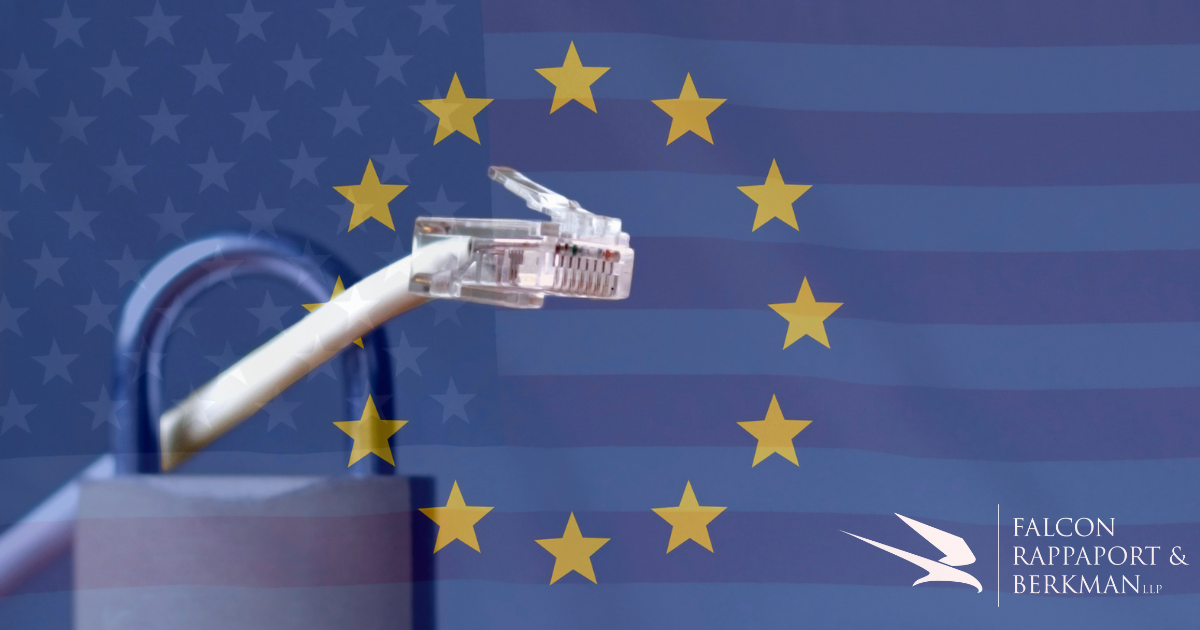The EU-US Data Privacy Framework: Are You in Compliance?
By: James M. Black II, Esq., Daniel J. Gershman, Esq. and Christopher Rivera
The U.S. Departments of Justice and Commerce, as well as the European Commission recently launched the EU-US Data Privacy Framework (“DPF”), marking a significant shift from the previous frameworks such as Safe Harbor and Privacy Shield.[1] In this article, we provide an overview of these recent developments along with an outline of the advantages your business stands to gain by participating in this program.
Understanding the EU-US Data Privacy Framework
The DPF regulates the transfer of personal data between the United States and European Union, aiming to synchronize with the General Data Protection Regulation (“GDPR”) and uphold the EU’s standards of protection.[2] Notably, this program responds, in part, to the European Court of Justice's concerns over government surveillance practices, which led to the nullification of the previous frameworks mentioned above.[3] Although participation in the DPF is voluntary, the program presents a transparent route to establish GDPR compliance and publicly demonstrate your commitment to protecting personal data.
Why Participate?
Opting into the DPF offers substantial benefits for your business such as:
- Legal Certainty: Streamline your data transfer processes with the confidence that they meet international standards.
- Reputational Advantage: Showcase your company’s commitment to data protection and bolster trust with your customers and partners.
- Operational Efficiency: Establish safeguards to help avoid the potential costs associated with non-compliance by following a recognized framework.
As participation in the DPF is voluntary, there are no specific fines or penalties outlined for non-compliance. However, failure to adhere to its standards may result in significant legal and financial consequences for businesses within the scope of the GDPR. This could include substantial fines imposed for breaches of data protection principles and the potential for legal prosecution. European authorities have demonstrated their willingness to pursue GDPR claims against companies of all sizes. For example, in 2023, Meta incurred a notable fine of $1.3 billion. Similarly, fines for small to medium-sized companies have ranged from thousands to millions of dollars, underscoring the critical importance of compliance for all businesses.
Compliance at a Glance
To align with the DPF, U.S. businesses must undertake self-certification to confirm their adherence to the set of established data protection principles. This process involves a comprehensive review of its privacy policies, integrating GDPR-equivalent protections for personal data, and adjusting data management procedures.[4] For example, this may include minimalizing the collection of personal data to only include specified, explicit, and legitimate purposes.
Conclusion
Our team of attorneys understand the complexities involved in navigating the international data privacy regulations laws and encourage you to contact us if you are in need of assistance. Falcon Rappaport & Berkman is prepared to provide counsel regarding these issues and further guide you through the data compliance process. Contact our Corporate & Securities Practice Group at 516-599-0888 or by filling out the form below.
[1] U.S. Department of Commerce, “Data Privacy Framework Program Launches New Website Enabling U.S. Companies to Participate in Cross-Border Data Transfers,” July 17, 2023, https://www.commerce.gov/news/press-releases/2023/07/data-privacy-framework-program-launches-new-website-enabling-us.
[2] Id.
[3] See: https://www.ftc.gov/business-guidance/privacy-security/data-privacy-framework
[4] See: https://www.dataprivacyframework.gov/
DISCLAIMER: This summary is not legal advice and does not create any attorney-client relationship. This summary does not provide a definitive legal opinion for any factual situation. Before the firm can provide legal advice or opinion to any person or entity, the specific facts at issue must be reviewed by the firm. Before an attorney-client relationship is formed, the firm must have a signed engagement letter with a client setting forth the Firm’s scope and terms of representation. The information contained herein is based upon the law at the time of publication.

